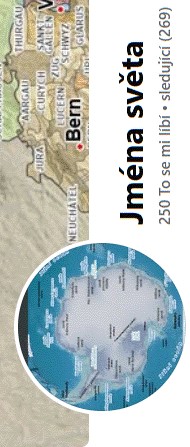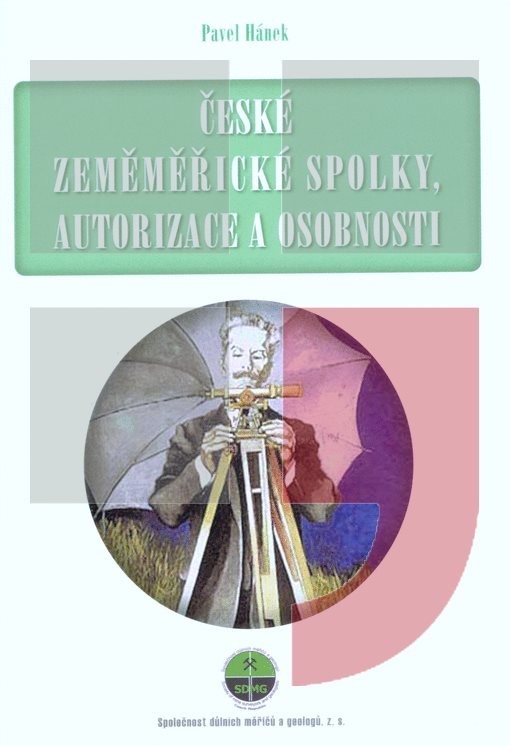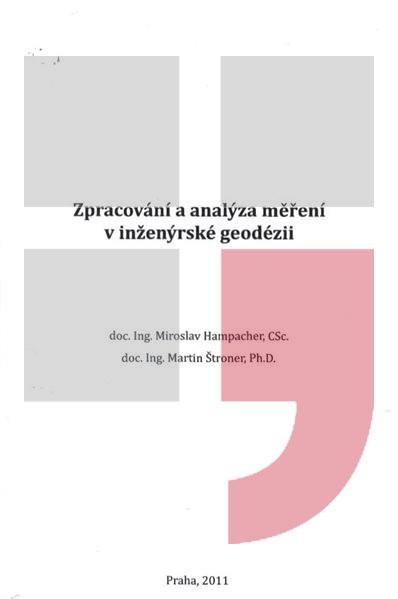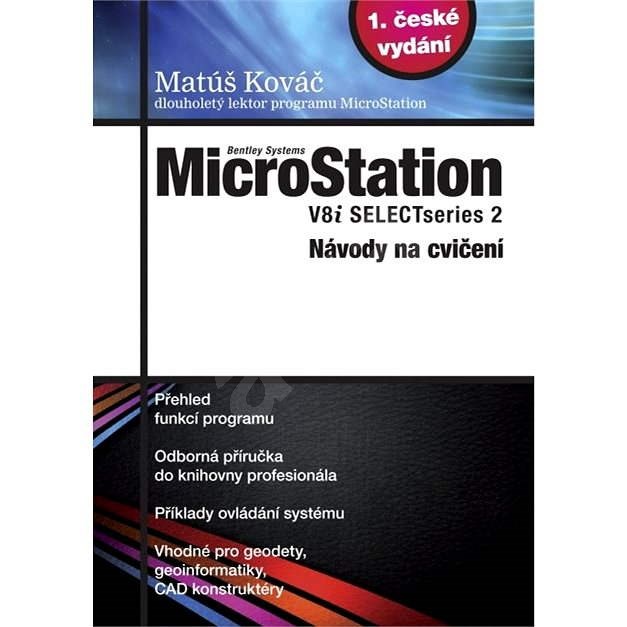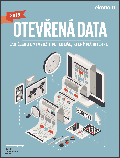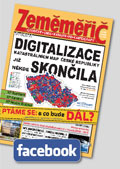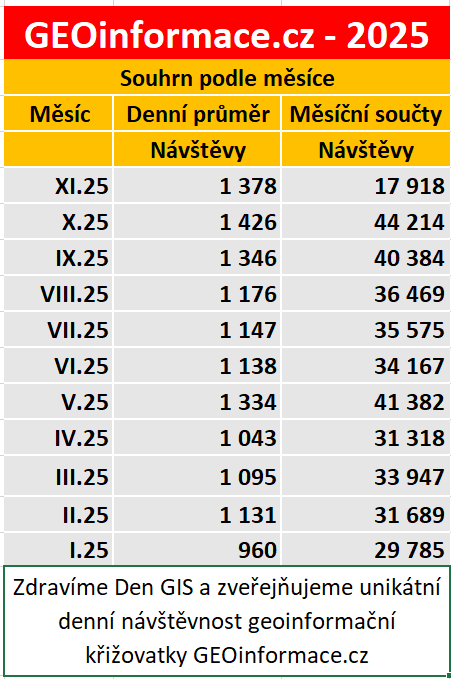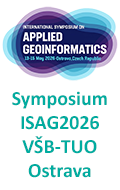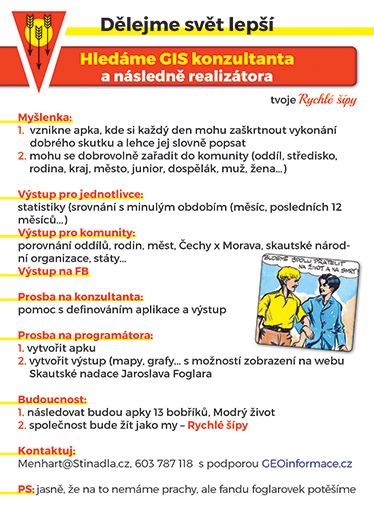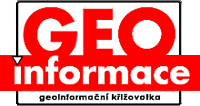zprávy
zdroje zpráv:Odborný referent/vrchní referent v oddělení obnovy katastrálního operátu č. 3 na Technické sekci
19.6.2017 14:36 ČÚZK - volná místa Katastrální úřad pro Jihomoravský kraj, vypisuje výběrové řízení na místo Odborný referent/vrchní referent v oddělení obnovy katastrálního operátu č. 3 na Technické sekciOdborný referent/vrchní referent v oddělení obnovy katastrálního operátu č. 3 na Technické sekci
19.6.2017 14:36 ČÚZK - předpisy a opatření Katastrální úřad pro Jihomoravský krajvypisuje výběrové řízení na místo
Odborný referent/vrchní referent v oddělení obnovy katastrálního operátu č. 3 na Technické sekci
Odborný referent/vrchní referent v oddělení obnovy katastrálního operátu č. 3 na Technické sekci
19.6.2017 14:36 ČÚZK /Urady/Katastralni-urady/Katastralni-urady/Katastralni-urad-pro-Jihomoravsky-kraj/Uredni-deska/Oznameni-a-jina-uredni-sdeleni/Volna-mista/Odborny-referent-vrchni-referent-v-oddeleni-obnovyOdborný referent/vrchní referent v oddělení obnovy katastrálního operátu č. 2 na Technické sekci
19.6.2017 14:31 ČÚZK /Urady/Katastralni-urady/Katastralni-urady/Katastralni-urad-pro-Jihomoravsky-kraj/Uredni-deska/Oznameni-a-jina-uredni-sdeleni/Volna-mista/oOdborny-referent-vrchni-referent-v-oddeleni-obnovOdborný referent/vrchní referent v oddělení obnovy katastrálního operátu č. 2 na Technické sekci
19.6.2017 14:31 ČÚZK - předpisy a opatření Katastrální úřad pro Jihomoravský krajvypisuje výběrové řízení na místo
Odborný referent/vrchní referent v oddělení obnovy katastrálního operátu č. 2 na Technické sekci
Odborný referent/vrchní referent v oddělení obnovy katastrálního operátu č. 2 na Technické sekci
19.6.2017 14:31 ČÚZK - volná místa Katastrální úřad pro Jihomoravský kraj, vypisuje výběrové řízení na místo Odborný referent/vrchní referent v oddělení obnovy katastrálního operátu č. 2 na Technické sekciOdborný referent v oddělení obnovy katastrálního operátu č. 2 na Technické sekci
19.6.2017 14:27 ČÚZK /Urady/Katastralni-urady/Katastralni-urady/Katastralni-urad-pro-Jihomoravsky-kraj/Uredni-deska/Oznameni-a-jina-uredni-sdeleni/Volna-mista/Odborny-referent-v-oddeleni-obnovy-katastralni-(1)Odborný referent v oddělení obnovy katastrálního operátu č. 2 na Technické sekci
19.6.2017 14:27 ČÚZK - předpisy a opatření Katastrální úřad pro Jihomoravský krajvypisuje výběrové řízení na místo
Odborný referent v oddělení obnovy katastrálního operátu č. 2 na Technické sekci
Odborný referent v oddělení obnovy katastrálního operátu č. 2 na Technické sekci
19.6.2017 14:27 ČÚZK - volná místa Katastrální úřad pro Jihomoravský kraj, vypisuje výběrové řízení na místo Odborný referent v oddělení obnovy katastrálního operátu č. 2 na Technické sekci20170619 - uzavření KP dne 7.7.2017
19.6.2017 14:25 ČÚZK /Urady/Katastralni-urady/Katastralni-urady/Katastralni-urad-pro-Ustecky-kraj/Katastralni-pracoviste/KP-Usti-nad-Labem/O-uradu/Aktuality/20170619-uzavreni-KP-dne-7-7-201720170619 - uzavření KP dne 7.7.2017
19.6.2017 14:25 ČÚZK - předpisy a opatření Katastrální úřad pro Ústecký kraj Katastrální pracoviště Ústí nad Labem zveřejnil novou aktualitu: Dne 7. 7. 2017 bude Katastrální pracoviště Ústí nad Labem z provozních důvodů uzavřeno pro veřejnost. Děkujeme za pochopení.Odborný referent v oddělení obnovy katastrálního operátu č. 1 na Technické sekci
19.6.2017 14:24 ČÚZK - volná místa Katastrální úřad pro Jihomoravský kraj, vypisuje výběrové řízení na místo Odborný referent v oddělení obnovy katastrálního operátu č. 1 na Technické sekciOdborný referent v oddělení obnovy katastrálního operátu č. 1 na Technické sekci
19.6.2017 14:24 ČÚZK /Urady/Katastralni-urady/Katastralni-urady/Katastralni-urad-pro-Jihomoravsky-kraj/Uredni-deska/Oznameni-a-jina-uredni-sdeleni/Volna-mista/Odborny-referent-v-oddeleni-obnovy-katastralniho-oOdborný referent v oddělení obnovy katastrálního operátu č. 1 na Technické sekci
19.6.2017 14:24 ČÚZK - předpisy a opatření Katastrální úřad pro Jihomoravský krajvypisuje výběrové řízení na místo
Odborný referent v oddělení obnovy katastrálního operátu č. 1 na Technické sekci
Rada/odborný rada v oddělení obnovy katastrálního operátu č. 2 na Technické sekci
19.6.2017 14:21 ČÚZK - předpisy a opatření Katastrální úřad pro Jihomoravský krajvypisuje výběrové řízení na místo
Rada/odborný rada v oddělení obnovy katastrálního operátu č. 2 na Technické sekci
Rada/odborný rada v oddělení obnovy katastrálního operátu č. 2 na Technické sekci
19.6.2017 14:21 ČÚZK - volná místa Katastrální úřad pro Jihomoravský kraj, vypisuje výběrové řízení na místo Rada/odborný rada v oddělení obnovy katastrálního operátu č. 2 na Technické sekciRada/odborný rada v oddělení obnovy katastrálního operátu č. 2 na Technické sekci
19.6.2017 14:21 ČÚZK /Urady/Katastralni-urady/Katastralni-urady/Katastralni-urad-pro-Jihomoravsky-kraj/Uredni-deska/Oznameni-a-jina-uredni-sdeleni/Volna-mista/Rada-odborny-rada-v-oddeleni-obnovy-katastralnihoOdborný referent/vrchní referent v oddělení právních vztahů k nemovitostem
19.6.2017 14:16 ČÚZK - volná místa Katastrální úřad pro Jihomoravský kraj, Katastrální pracoviště Hodonín vypisuje výběrové řízení na místo Odborný referent/vrchní referent v oddělení právních vztahů k nemovitostemOdborný referent/vrchní referent v oddělení právních vztahů k nemovitostem
19.6.2017 14:16 ČÚZK /Urady/Katastralni-urady/Katastralni-urady/Katastralni-urad-pro-Jihomoravsky-kraj/Uredni-deska/Oznameni-a-jina-uredni-sdeleni/Volna-mista/Odborny-referent-vrchni-referent-v-oddeleni-pr-(1)Odborný referent/vrchní referent v oddělení právních vztahů k nemovitostem
19.6.2017 14:16 ČÚZK - předpisy a opatření Katastrální úřad pro Jihomoravský kraj Katastrální pracoviště Hodonínvypisuje výběrové řízení na místo
Odborný referent/vrchní referent v oddělení právních vztahů k nemovitostem
ESA na pařížském aerosalónu 2017
19.6.2017 12:51 Český Kosmický PortálUž v pondělí 19. června otevře své brány 52. pařížský aerosalón na letišti Le Bourget. ESA bude prezentovat své programy ve vlastním pavilonu mezi modely raket Ariane 1 a Ariane 5 ve skutečné velikosti - hned vedle stálé expozice Muzea letectví a kosmonautiky.
ESA na pařížském aerosalónu 2017
19.6.2017 12:51 Český Kosmický PortálUž v pondělí 19. června otevře své brány 52. pařížský aerosalón na letišti Le Bourget. ESA bude prezentovat své programy ve vlastním pavilonu mezi modely raket Ariane 1 a Ariane 5 ve skutečné velikosti - hned vedle stálé expozice Muzea letectví a kosmonautiky.
aktualizované ÚAP Prahy
19.6.2017 12:34 Geoportál PrahaNově zveřejněné Územně analytické podklady 2016 - soubor rozborů, analýz, map a čísel o Praze, slouží jako podklad pro územně plánovací činnost, rozhodování v území a hodnotí Prahu i z hlediska udržitelného rozvoje ve vztahu k Strategickému plánu.
Mapová aplikace byla aktualiz
19.6.2017 12:00 Jihočeský kraj Mapová aplikace byla aktualizována k 18. 6. 2017.Mapová aplikace Územně analyti
19.6.2017 12:00 Jihočeský kraj Mapová aplikace Územně analytické podklady byla aktualizována k 18. 6. 2017.Terénní automobil SANTANA
19.6.2017 11:04 ČÚZK /Urady/Katastralni-urady/Katastralni-urady/Katastralni-urad-pro-Jihomoravsky-kraj/Nabidky-majetku/Terenni-automobil-SANTANA-(1)Terénní automobil SANTANA
19.6.2017 11:04 ČÚZK - předpisy a opatřeníKatastrální úřad pro Jihomoravský kraj nabízí nepotřebný majetek k odkupu. Jedná se o
Terénní automobil SANTANA
Osobní automobil PEUGEOT 306
19.6.2017 11:03 ČÚZK - předpisy a opatřeníKatastrální úřad pro Jihomoravský kraj nabízí nepotřebný majetek k odkupu. Jedná se o
Osobní automobil PEUGEOT 306
Osobní automobil PEUGEOT 306
19.6.2017 11:03 ČÚZK /Urady/Katastralni-urady/Katastralni-urady/Katastralni-urad-pro-Jihomoravsky-kraj/Nabidky-majetku/Osobni-automobil-PEUGEOT-306-(1)Kompresor Orlík
19.6.2017 11:01 ČÚZK - předpisy a opatřeníKatastrální úřad pro Jihomoravský kraj nabízí nepotřebný majetek k odkupu. Jedná se o
Kompresor Orlík
Kompresor Orlík
19.6.2017 11:01 ČÚZK /Urady/Katastralni-urady/Katastralni-urady/Katastralni-urad-pro-Jihomoravsky-kraj/Nabidky-majetku/Kompresor-Orlik-(1)Přečtěte si jarní časopis ArcUser
19.6.2017 9:30 ARCDATAJarní vydání časopisu ArcUser se věnuje celé řadě zajímavých témat. Naleznete zde hned tři „hands on“ cvičení, novinky o technologii i články o nasazení GIS napříč obory.
I tentokrát jsme pro vás připravili přehled zajímavých článků z tohoto čísla, který naleznete na samostatné stránce.
Vytvořili jsme SW ThermoAnalytics který dodáváme k inspekcím solárních elektráren drony zdarma
19.6.2017 8:41 UpVision K našim inspekcím solárních elektráren drony jsme na podzim loňského roku vytvořili náš software ThermoAnalytics, který dodáváme zdarma ke každé naší inspekci. Program umožňuje zobrazování a přepínání našich RGB a termo ortofot, včetně označených a popsaných identifikovaných závad. Především ale slouží ke správě všech prováděných inspekcí a jednoduchému exportu výsledného protokolu s nejdůležitějším souhrnem plynoucí z každé inspekce, který zajímá majitele a provozovatele FVE nejvíce.Více na stránce:
http://www.thermoanalytics.cz/
WFS INSPIRE Habitats and biotopes
19.6.2017 2:00 Cenia - Katalog metadat ČR - INSPIRE The web feature services depicts a distribution of habitats and biotopes in ETRS grid (EEA standard grid, 10 x 10 km cell) in the Czech Republic. The distribution had been compiled to year 2013. © AOPK ČRVARS BRNO a.s. podalo nabídku na Systém plošného monitorování dopravních zátěží prostřednictvím plovoucích vozidel (FCD)
19.6.2017 2:00 VARS.cz VARS BRNO a.s. se spojilo se společností INRIX, která je lídrem na celosvětovém trhu v oblasti práce s daty flotilových vozidel. Společně jsme připraveni vytvořit systém, který bude v reálném čase poskytovat data pro řízení dopravy a dopravní informace.Animace jednoho roku v životě planety Země
18.6.2017 7:00 Česká asociace pro geoinformace V únoru 2015 spojily organizace NOAA a NASA síly a vypustily satelit DSCOVR. Oběžná dráha satelitu se nachází přibližně 1 milion mil od Země. Satelit pořizuje několikrát denně snímek Země. NASA těchto snímků dala dohromady více než 3 000 a vznikla tak tato animace, která ukazuje rok v životě našíNový doktorandský studijní program v geoinformatice na UPJŠ v Košicích
18.6.2017 7:00 Česká asociace pro geoinformaceOd akademického roku 2017/2018 Ústave geografie Prírodovedeckej fakulty Univerzity Pavla Jozefa Šafárika (UPJŠ) v Košicích otevírá nový doktorandský studijní program Geoinformatika a DPZ, který je zaměřený na mapování a výzkum krajiny pomocí GIS a metod DPZ.
Více na ebu geocommunity.sk
Od akademického roku 2017/2018 Ústave geografie Prírodovedeckej fakulty
ČÚZK hledá analytika-programátora
18.6.2017 7:00 Česká asociace pro geoinformacePředseda ČÚZK vyhlašuje výběrové řízení na služební místo analytik - programátor v oboru
služby „36. Informační a komunikační technologie“. Místem výkonu služby je Praha. Předpokládaným dnem nástupu do služby na tomto služebním místě je 1. 8. 2017 nebo jiný termín dle dohody.
Náplň činnosti na služebním místě:
zejména vývoj (SQL, PL/SQL) a
Nové doktorandské štúdium v odbore geoinformatika na UPJŠ v Košiciach
16.6.2017 21:13 Geocommunity.skPríspevok Nové doktorandské štúdium v odbore geoinformatika na UPJŠ v Košiciach zobrazený najskôr GeoCommunity.sk.
Bentley Systems Reality Modeling Application Named Best Overall Solution at The Reliability Conference in Las Vegas
16.6.2017 16:54 Bentley SystemsWhat:
ContextCapture, Bentley Systems, Incorporated’s reality modeling software that allows users to quickly create 3D models from simple photographs, was named Best Overall Solution at the Reliability Solution Awards held in conjunction with The Reliability Conference, in Las Vegas, Nevada, hosted by Uptime Magazine and Reliabilityweb.com. The Reliability Solution Awards recognize innovative products, software, training, and services for maintenance, reliability, and asset management.
Bentley’s ContextCapture was recognized in the Asset Condition Management, Work Execution Management, Leadership for Reliability, and Asset Management categories. It won Best Overall Solution for the ease of which 3D models can be created to capture the as-operated asset state, and then capture the knowledge of the retiring workforce within the asset’s reliability program, making training and asset maintenance knowledge transfer easier. The 3D model forms the basis of the immersive visual operation for a more engaging graphical day-to-day experience in managing assets.
Who:
Francois Valois, Senior Director, Software Development, Reality Modeling
Sandra DiMatteo, Director of Marketing, Asset Performance
Where:
Uptime Magazine and Reliabilityweb.com made the announcement at The Reliability Conference in Las Vegas, Nevada.
When:
April 26, 2017
For more information:
You can contact Francois at francois.valois@bentley.com (418) 572-3361 or Sandra at sandra.dimatteo@bentley.com (289) 816-2604 to find out more about the award ceremony and discuss that capabilities of ContextCapture for reality modeling.
About ContextCapture:
ContextCapture is Bentley’s reality modeling software that can quickly produce 3D models of existing conditions for infrastructure projects of all types, derived from simple photographs and/or point cloud. Without the need for expensive or specialized equipment, ContextCapture enables users to quickly create and use these highly-detailed 3D engineering-ready reality meshes to provide precise real-world context for design, construction, and operations decisions throughout the lifecycle of projects. Project teams can easily and consistently share reality modeling information, consumable and accessible, on desktop and mobile devices, in many formats, including native use within MicroStation for use in any engineering, operations, maintenance, or GIS workflow. For additional information, visit www.bentley.com/ContextCapture.
About Bentley Systems:
Bentley Systems is a global leader in providing engineers, architects, geospatial professionals, constructors, and owner-operators with comprehensive software solutions for advancing the design, construction, and operations of infrastructure. Bentley users leverage information mobility across disciplines and throughout the infrastructure lifecycle to deliver better-performing projects and assets. Bentley solutions encompass MicroStation applications for information modeling, ProjectWise collaboration services to deliver integrated projects, and AssetWise operations services to achieve intelligent infrastructure – complemented by worldwide professional services and comprehensive managed services. For additional information, visit www.bentley.com.
Soutěž pro absolventy programu Erasmus
16.6.2017 12:05 Katedra geografie UP Olomouc Dům zahraniční spolupráce vyhlásil 9. ročník soutěže Erasmus Label, letos s tématem "Erasmus včera a dnes". Cílem soutěže je ocenit zajímavě ztvárněné zážitky účastníků programu Erasmus. Přihlášku do soutěže musíte poslat emailem nejpozději do 30. září. Více podrobností najdete ZDE, případně ZDE.Mapová aplikace Technická infr
16.6.2017 12:00 Jihočeský kraj Mapová aplikace Technická infrastruktura a mapová aplikace Zastavěné území byly aktualizovány k 15.6.2017.V mapové aplikaci Investiční a
16.6.2017 12:00 Jihočeský kraj V mapové aplikaci Investiční akce 2017 (https://gisportal.kraj-jihocesky.gov.cz/arcgis/apps/webappviewer/index.html?id=466a55ed842b4e438b4c6c09a96c4ea1) byly doplněny informace k uzavírkám mostu ev. č. 138-012 v Chřešťovicích, mostu ev. č. 173-001 ve Strakonicích, silnice III/41020 Chvalkovice - Nové Sady a silnice III/02032 Chvaletice - Pohorovice.Ve spolupráci s Odborem strate
16.6.2017 12:00 Ústecký krajVe spolupráci s Odborem strategie a realizace projektů byla vytvořena mapová aplikace "Kotlíkové dotace". V mapové aplikaci naleznete vyhodnocení 1.Výzvy kotlíkových dotací v Ústeckém kraji. Jsou zde přehledně zobrazeny realizace výměn tepelných zdrojů v rámci jednotlivých obcích a ORP v Ústeckém kraji.
Mapovou aplikaci naleznete na úvodní straně a také v sekci MAPY - > Rozvoj kraje a dotace -> Kotlíkové dotace.
Mapová aplikace a mapová apli
16.6.2017 12:00 Jihočeský kraj Mapová aplikace a mapová aplikace byly aktualizovány k 15.6.2017.V mapové aplikaci Investiční a
16.6.2017 12:00 Jihočeský kraj V mapové aplikaci Investiční akce 2017 byly doplněny informace k uzavírkám mostu ev. č. 138-012 v Chřešťovicích, mostu ev. č. 173-001 ve Strakonicích, silnice III/41020 Chvalkovice - Nové Sady a silnice III/02032 Chvaletice - Pohorovice.20170616-VŘ Analytik-programátor
16.6.2017 10:34 ČÚZK /Aktuality-resort/2017/20170616-VR-Analytik-programator20170616-VŘ Analytik-programátor
16.6.2017 10:34 ČÚZK - předpisy a opatření Český úřad zeměměřický a katastrální zveřejnil novou aktualitu: Oznámení o vyhlášení výběrového řízení na služební místo - Analytik-programátor.Třetím rokem identifikujeme zvěř dronem před sklizní s VÚZT a MendelU
16.6.2017 10:23 UpVision Už třetím rokem provádíme při svítání identifikaci zvěře z dronu před sklizní v rámci výzkumného úkolu s VÚZT a Mendelovou univerzitou. Nálezy a záchrana srnčat vždy potěší.Více zde:
https://plus.google.com/+UpvisionCz1/posts/K9GMRkWQznk
Analytik - programátor
16.6.2017 10:07 ČÚZK - předpisy a opatření Český úřad zeměměřický a katastrálnívypisuje výběrové řízení na místo
Analytik - programátor
Thar Desert
16.6.2017 10:05 ESA Observing the Earth
Earth observation image of the week: a Sentinel-2 false-colour image over northwest India, also featured on the Earth from Space video programme
Brigáda na oddělení GIS Krajského úřadu Plzeňského kraje
16.6.2017 10:04 Blogující geomatici - FAV ZČU Oddělení GIS Krajského úřadu Plzeňského kraje má zájem o novou pracovní sílu (jako záskok za mateřskou dovolenou) formou Dohody o pracovní činnosti v rozsahu cca 2 dny v týdnu (maximálně však 4 hodiny denně). Podmínky se dají přizpůsobit.Případní zájemci mohou kontaktovat Elišku Pečenkovou na e-mailu eliska.pecenkova-AT-plzensky-kraj.cz
Chcete pracovat pro firmu Bosch?
16.6.2017 10:00 Blogující geomatici - FAV ZČU Je pro vás zajímavé pracovat pro velkou mezinárodní firmu? A chtěli byste pracovat v Německu?Firma Robert Bosh GmbH momentálně vypisuje celou řadu pracovních míst viz zde.A pokud byste měli dne 22. 6. 2017 cestu kolem města Abstatt (blízko Stuttgartu), můžete se tam zastavit na akci nazvané "Bring a friend" a dozvědět se mnohem více.
Pro bližší info nejen o výše uvedené akci kontaktujte Markétu Pokornou na Marketa.Pokorna-AT-de.bosch.com
Galileo signal team wins European Inventor Award
16.6.2017 9:45 ESA Navigation
The invisible signals that Europe’s Galileo satellites are beaming down to the world are officially award-winning: the team behind their design has won the European Inventor Award, run by the European Patent Office.
omezení provozu
16.6.2017 7:49 ČÚZK - předpisy a opatření zveřejnil novou aktualitu: Vážení klienti,upozorňujeme, že v pátek 16. 6. 2017 budou z technických důvodů v době od 11:00 do 13:00 hodin Vaše podání přijímána pouze ručně a nebude možné jim přiřadit číslo jednací. Děkujeme za pochopení.
omezení provozu
16.6.2017 7:49 ČÚZK - předpisy a opatření zveřejnil novou aktualitu: Vážení klienti,upozorňujeme, že v pátek 16. 6. 2017 budou z technických důvodů v době od 11:00 do 13:00 hodin Vaše podání přijímána pouze ručně a nebude možné jim přiřadit číslo jednací. Děkujeme za pochopení.
omezení provozu
16.6.2017 7:49 ČÚZK - předpisy a opatření zveřejnil novou aktualitu: Vážení klienti,upozorňujeme, že v pátek 16. 6. 2017 budou z technických důvodů v době od 11:00 do 13:00 hodin Vaše podání přijímána pouze ručně a nebude možné jim přiřadit číslo jednací. Děkujeme za pochopení.
omezení provozu
16.6.2017 7:49 ČÚZK - předpisy a opatření zveřejnil novou aktualitu: Vážení klienti,upozorňujeme, že v pátek 16. 6. 2017 budou z technických důvodů v době od 11:00 do 13:00 hodin Vaše podání přijímána pouze ručně a nebude možné jim přiřadit číslo jednací. Děkujeme za pochopení.
Nepotřebný majetek - výběrové řízení
16.6.2017 6:56 ČÚZK /Urady/Katastralni-urady/Katastralni-urady/Katastralni-urad-pro-Liberecky-kraj/Nabidky-majetku/Nepotrebny-majetek-vyberove-rizeniNepotřebný majetek - výběrové řízení
16.6.2017 6:56 ČÚZK - předpisy a opatřeníKatastrální úřad pro Liberecký kraj nabízí nepotřebný majetek k odkupu. Jedná se o
Nepotřebný majetek - výběrové řízení
INSPIRE stahovací služba WCS pro téma Nadmořská výška (EL)
16.6.2017 2:00 Cenia - Katalog metadat ČR - INSPIRE INSPIRE stahovací služba WCS pro téma Nadmořská výška (EL) je služba umožňující registrovaným uživatelům opakované stahování dat pomocí technologie WCS 1.0.0. Stahovací služba umožňuje stahování dat ve formátech GeoTIFF, JPEG2000,ECW nebo IMG, součástí může být GML soubor s doplňujícími informacemi.Jednorázové stahování dat je z kapacitních důvodů omezeno na 100 000 000 pixelů. Data jsou poskytována v souřadnicovém systému ETRS89/TM33. Základem poskytovaných dat je Digitální model reliiéfu České republiky 4. generace (DMR 4G). Služba splňuje standard OGC WCS 1.0.0. Služba je prozatím poskytována ve zkušebním režimu.Gravimetrická mapa České republiky (GEOČR500)
16.6.2017 2:00 Cenia - Katalog metadat ČR - INSPIRE Gravimetrická mapa (J. Sedlák, Geofyzika, a.s., 1998) byla publikována v roce 1998 v rámci Atlasu map České republiky GEOČR500, ČGS. Obsahuje rastrový obraz gravimetrického pole. Mapa byla vytvořena na základě měření 283 718 podrobných tíhových bodů.Mapa minerálních vod České republiky (GEOČR500)
16.6.2017 2:00 Cenia - Katalog metadat ČR - INSPIRE Hydrogeologické struktury, oblasti označující chemismus vod, geoizotermy, oblasti s lokálním výskytem minerálních vod a dokumentační body.Cílem sestavení Mapy minerálních vod 1 : 500 000 (Jan Čurda, Český geologický ústav, 1998) je ukázat základní regionální a lokální zákonitosti rozšíření minerálních vod jako specifické skupiny vod podzemních, ukázat hydrogeologické podmínky jejich výskytu, chemické složení různých skupin a typů vod, jejich různorodé využití, ale také možnosti získání nových zdrojů. Součástí mapy je Katalog dokumentačních bodů a Vysvětlivky. Katalog obsahuje všechny údaje o lokalitách, které jsou na mapě bodově znázorněné spolu se základními hydrogeologickými a hydrochemickými údaji.INSPIRE stahovací služba WCS pro téma Ortofotosnímky (OI)
16.6.2017 2:00 Cenia - Katalog metadat ČR - INSPIRE INSPIRE stahovací služba WCS pro téma Ortofotosnímky (OI) je služba umožňující registrovaným uživatelům opakované stahování dat pomocí technologie WCS 1.0.0. Stahovací služba umožňuje stahování dat ve formátech GeoTIFF, JPEG2000,ECW nebo IMG, součástí může být GML soubor s doplňujícími informacemi. Jednorázové stahování dat je z kapacitních důvodů omezeno na 100 000 000 pixelů. Data jsou poskytována v souřadnicovém systému ETRS89/TM33. Základem poskytovaných dat je Ortofoto České republiky. Služba splňuje standard OGC WCS 1.0.0. Služba je prozatím poskytována ve zkušebním režimu.Nabídka stáže v Bruselu pro geografy
15.6.2017 19:38 Katedra geografie UP Olomouc Stálé zastoupení České republiky při Evropské unii nabízí možnost tříměsíční stáže v Bruselu s počátkem 15. září 2017. Hledají vyloženě někoho s oborem studia "Vědy o Zemi". Pro danou nabídku je možné využít pracovních stáží programu Erasmus+ a tím si nechat významně finančně přispět na celý pobyt. V případě zájmu je nutné zaslat dopis s životopisem a přihláškou nejpozději do 15. července. Více informací ZDE.Sea ice down the drain
15.6.2017 16:24 ESA Observing the Earth
The Copernicus Sentinel-1 mission captures thick sea ice being flushed out of the Lincoln Sea in the Arctic Ocean through Nares Strait after the early collapse of an ice arch
Earth from Space
15.6.2017 14:25 ESA Observing the Earth
Join us Friday, 16 June, at 10:00 CEST for the ‘Earth from Space’ video programme
Hexagon Safety & Infrastructure Selects Microsoft Azure for New Public Safety and Security Cloud Products
15.6.2017 14:00 Hexagon Safety & InfrastructureHexagon Safety & Infrastructure has selected Microsoft Azure as the cloud platform for its next-generation public safety and security products. These products will help to radically reduce the total cost of ownership (TCO) for mission-critical IT and enable public safety agencies and security operators to adapt to changing needs faster and more effectively.
Hexagon’s new software-as-a-service (SaaS) products will enable customers to provision public safety and security solutions without complex hardware and software procurements. Having been built natively on Azure, Hexagon’s public safety and security products will take advantage of Azure’s platform-as-a-service (PaaS) to expedite development and deliver better capabilities than applications built from generic code and hosted in the cloud.
“The public safety and security industries are in transition, and they need partners and systems they can trust to help them adapt to new threats and growing demands,” said Kalyn Sims, chief technology officer, Hexagon Safety & Infrastructure. “Microsoft Azure provides options for public, private and hybrid clouds, which support the varying stages of cloud adoption across organizations. Currently, Azure has more regions and the most comprehensive compliance certifications of any public cloud provider making it an ideal foundation on which Hexagon can build its task-focused public safety and physical security applications.”
Hexagon will release its first SaaS product later this year for physical security and monitoring. Hexagon’s next-generation public safety and security applications will deliver improved performance, usability and flexibility. Informed by extensive user experience research, they will feature highly productive, easy-to-use interfaces and workflows that are simple to deploy and maintain via Azure.
“Microsoft Azure provides Hexagon with a robust and secure platform for it to help public safety agencies and security operators adapt to a rapidly changing industry,” said Nicole Herskowitz, senior director of product marketing, Azure, Microsoft Corp. “As organizations continue to transition critical services to the cloud, we are pleased to support Hexagon and see its commitment to Azure.”
A global leader in public safety and security, Hexagon Safety & Infrastructure helps protect 1 in 12 people worldwide. Hexagon’s public safety and security solutions improve the quality, accuracy and availability of critical information, increasing performance and productivity, while reducing the total cost of ownership for mission-critical IT investments.
Hexagon Safety & Infrastructure Selects Microsoft Azure for New Public Safety and Security Cloud Products
15.6.2017 14:00 Hexagon Safety & InfrastructureHexagon Safety & Infrastructure has selected Microsoft Azure as the cloud platform for its next-generation public safety and security products. These products will help to radically reduce the total cost of ownership (TCO) for mission-critical IT and enable public safety agencies and security operators to adapt to changing needs faster and more effectively.
Hexagon’s new software-as-a-service (SaaS) products will enable customers to provision public safety and security solutions without complex hardware and software procurements. Having been built natively on Azure, Hexagon’s public safety and security products will take advantage of Azure’s platform-as-a-service (PaaS) to expedite development and deliver better capabilities than applications built from generic code and hosted in the cloud.
“The public safety and security industries are in transition, and they need partners and systems they can trust to help them adapt to new threats and growing demands,” said Kalyn Sims, chief technology officer, Hexagon Safety & Infrastructure. “Microsoft Azure provides options for public, private and hybrid clouds, which support the varying stages of cloud adoption across organizations. Currently, Azure has more regions and the most comprehensive compliance certifications of any public cloud provider making it an ideal foundation on which Hexagon can build its task-focused public safety and physical security applications.”
Hexagon will release its first SaaS product later this year for physical security and monitoring. Hexagon’s next-generation public safety and security applications will deliver improved performance, usability and flexibility. Informed by extensive user experience research, they will feature highly productive, easy-to-use interfaces and workflows that are simple to deploy and maintain via Azure.
“Microsoft Azure provides Hexagon with a robust and secure platform for it to help public safety agencies and security operators adapt to a rapidly changing industry,” said Nicole Herskowitz, senior director of product marketing, Azure, Microsoft Corp. “As organizations continue to transition critical services to the cloud, we are pleased to support Hexagon and see its commitment to Azure.”
A global leader in public safety and security, Hexagon Safety & Infrastructure helps protect 1 in 12 people worldwide. Hexagon’s public safety and security solutions improve the quality, accuracy and availability of critical information, increasing performance and productivity, while reducing the total cost of ownership for mission-critical IT investments.
Hexagon Safety & Infrastructure Selects Microsoft Azure for New Public Safety and Security Cloud Products
15.6.2017 14:00 Hexagon Safety & Infrastructure New SaaS platform and applications will emphasize reliability, security and agility with lower total cost of ownershipHexagon Safety & Infrastructure Selects Microsoft Azure for New Public Safety and Security Cloud Products
15.6.2017 14:00 Hexagon Safety & InfrastructureHexagon Safety & Infrastructure has selected Microsoft Azure as the cloud platform for its next-generation public safety and security products. These products will help to radically reduce the total cost of ownership (TCO) for mission-critical IT and enable public safety agencies and security operators to adapt to changing needs faster and more effectively.
Hexagon’s new software-as-a-service (SaaS) products will enable customers to provision public safety and security solutions without complex hardware and software procurements. Having been built natively on Azure, Hexagon’s public safety and security products will take advantage of Azure’s platform-as-a-service (PaaS) to expedite development and deliver better capabilities than applications built from generic code and hosted in the cloud.
“The public safety and security industries are in transition, and they need partners and systems they can trust to help them adapt to new threats and growing demands,” said Kalyn Sims, chief technology officer, Hexagon Safety & Infrastructure. “Microsoft Azure provides options for public, private and hybrid clouds, which support the varying stages of cloud adoption across organizations. Currently, Azure has more regions and the most comprehensive compliance certifications of any public cloud provider making it an ideal foundation on which Hexagon can build its task-focused public safety and physical security applications.”
Hexagon will release its first SaaS product later this year for physical security and monitoring. Hexagon’s next-generation public safety and security applications will deliver improved performance, usability and flexibility. Informed by extensive user experience research, they will feature highly productive, easy-to-use interfaces and workflows that are simple to deploy and maintain via Azure.
“Microsoft Azure provides Hexagon with a robust and secure platform for it to help public safety agencies and security operators adapt to a rapidly changing industry,” said Nicole Herskowitz, senior director of product marketing, Azure, Microsoft Corp. “As organizations continue to transition critical services to the cloud, we are pleased to support Hexagon and see its commitment to Azure.”
A global leader in public safety and security, Hexagon Safety & Infrastructure helps protect 1 in 12 people worldwide. Hexagon’s public safety and security solutions improve the quality, accuracy and availability of critical information, increasing performance and productivity, while reducing the total cost of ownership for mission-critical IT investments.
Hexagon Safety & Infrastructure Selects Microsoft Azure for New Public Safety and Security Cloud Products
15.6.2017 14:00 Hexagon Safety & Infrastructure New SaaS platform and applications will emphasize reliability, security and agility with lower total cost of ownershipHexagon Safety & Infrastructure Selects Microsoft Azure for New Public Safety and Security Cloud Products
15.6.2017 14:00 Hexagon Safety & Infrastructure New SaaS platform and applications will emphasize reliability, security and agility with lower total cost of ownershipTrimble Newsletter jún 2017
15.6.2017 13:29 Geotronics.skJún 2017 Geospatial Newsletter Obrázok mesiaca „Meranie na hrane.“ Greifensteinský zámok pri Bozene (Tyrolsko) v Nemecku. Trimble zákazníci majú najkrajšie zákazky, ktoré sú neraz výzvou pre geodeta. Ak máte aj vy zaujímavé fotografie, zašlite ich na obchod@geotronics.sk a okrem propagácie vás a vašej firmy na našej FB stránke sa možno aj vaša fotka stane fotkou mesiaca Trimble […]
Príspevok Trimble Newsletter jún 2017 zobrazený najskôr Geotronics Slovakia.
Hexagon Safety & Infrastructure Unveils Public Safety Reporting Application
15.6.2017 12:00 Hexagon Safety & InfrastructureHexagon Safety & Infrastructure has launched Intergraph InSight Reporting, a platform for quickly building and sharing interactive public safety agency reports and dashboards. It delivers data models and pre-built reports for Intergraph Computer-Aided Dispatch (I/CAD) and also connects to third-party data sources.
Unveiled at HxGN LIVE, Hexagon’s international conference, Intergraph InSight Reporting removes the reliance on specialist data management and analysis skills to prepare source data and develop reports, reducing costs and enabling agencies to respond quicker to their stakeholders’ needs. It increases awareness and improves communication through clear reports delivered automatically or on demand. It also delivers deeper insight by leveraging multiple data sources without additional licensing fees and restrictions.
“Agencies hold a great deal of data in their public safety systems. But they struggle to extract and share information to better understand and address complex issues,” said Steve Marz, vice president of product management, Hexagon Safety & Infrastructure. “Intergraph InSight Reporting provides an ideal platform to organize information comprehensively into interactive reports and dashboards. It makes reporting much simpler and easier.”
Intergraph InSight Reporting features more than 25 pre-built, standard reports. Users can also build custom dashboards and a wide variety of interactive reports, leveraging Microsoft Report Builder and Power BI. The application seamlessly populates data from I/CAD, and users can easily integrate third-party data sources into their custom reports and dashboards.
The global leader in public safety and security, Hexagon Safety & Infrastructure helps protect 1 in 12 people worldwide. Hexagon’s public safety and security solutions improve the quality, accuracy and availability of critical information, increasing performance and productivity, while reducing the total cost of ownership for mission-critical IT investments.
Hexagon Safety & Infrastructure Unveils Public Safety Reporting Application
15.6.2017 12:00 Hexagon Safety & InfrastructureHexagon Safety & Infrastructure has launched Intergraph InSight Reporting, a platform for quickly building and sharing interactive public safety agency reports and dashboards. It delivers data models and pre-built reports for Intergraph Computer-Aided Dispatch (I/CAD) and also connects to third-party data sources.
Unveiled at HxGN LIVE, Hexagon’s international conference, Intergraph InSight Reporting removes the reliance on specialist data management and analysis skills to prepare source data and develop reports, reducing costs and enabling agencies to respond quicker to their stakeholders’ needs. It increases awareness and improves communication through clear reports delivered automatically or on demand. It also delivers deeper insight by leveraging multiple data sources without additional licensing fees and restrictions.
“Agencies hold a great deal of data in their public safety systems. But they struggle to extract and share information to better understand and address complex issues,” said Steve Marz, vice president of product management, Hexagon Safety & Infrastructure. “Intergraph InSight Reporting provides an ideal platform to organize information comprehensively into interactive reports and dashboards. It makes reporting much simpler and easier.”
Intergraph InSight Reporting features more than 25 pre-built, standard reports. Users can also build custom dashboards and a wide variety of interactive reports, leveraging Microsoft Report Builder and Power BI. The application seamlessly populates data from I/CAD, and users can easily integrate third-party data sources into their custom reports and dashboards.
The global leader in public safety and security, Hexagon Safety & Infrastructure helps protect 1 in 12 people worldwide. Hexagon’s public safety and security solutions improve the quality, accuracy and availability of critical information, increasing performance and productivity, while reducing the total cost of ownership for mission-critical IT investments.
Hexagon Safety & Infrastructure Unveils Public Safety Reporting Application
15.6.2017 12:00 Hexagon Safety & InfrastructureHexagon Safety & Infrastructure has launched Intergraph InSight Reporting, a platform for quickly building and sharing interactive public safety agency reports and dashboards. It delivers data models and pre-built reports for Intergraph Computer-Aided Dispatch (I/CAD) and also connects to third-party data sources.
Unveiled at HxGN LIVE, Hexagon’s international conference, Intergraph InSight Reporting removes the reliance on specialist data management and analysis skills to prepare source data and develop reports, reducing costs and enabling agencies to respond quicker to their stakeholders’ needs. It increases awareness and improves communication through clear reports delivered automatically or on demand. It also delivers deeper insight by leveraging multiple data sources without additional licensing fees and restrictions.
“Agencies hold a great deal of data in their public safety systems. But they struggle to extract and share information to better understand and address complex issues,” said Steve Marz, vice president of product management, Hexagon Safety & Infrastructure. “Intergraph InSight Reporting provides an ideal platform to organize information comprehensively into interactive reports and dashboards. It makes reporting much simpler and easier.”
Intergraph InSight Reporting features more than 25 pre-built, standard reports. Users can also build custom dashboards and a wide variety of interactive reports, leveraging Microsoft Report Builder and Power BI. The application seamlessly populates data from I/CAD, and users can easily integrate third-party data sources into their custom reports and dashboards.
The global leader in public safety and security, Hexagon Safety & Infrastructure helps protect 1 in 12 people worldwide. Hexagon’s public safety and security solutions improve the quality, accuracy and availability of critical information, increasing performance and productivity, while reducing the total cost of ownership for mission-critical IT investments.
Hexagon Safety & Infrastructure Unveils Public Safety Reporting Application
15.6.2017 12:00 Hexagon Safety & Infrastructure Intergraph InSight Reporting makes building and sharing reports and dashboards easierHexagon Safety & Infrastructure Unveils Public Safety Reporting Application
15.6.2017 12:00 Hexagon Safety & Infrastructure Intergraph InSight Reporting makes building and sharing reports and dashboards easierHexagon Safety & Infrastructure Unveils Public Safety Reporting Application
15.6.2017 12:00 Hexagon Safety & InfrastructureHexagon Safety & Infrastructure has launched Intergraph InSight Reporting, a platform for quickly building and sharing interactive public safety agency reports and dashboards. It delivers data models and pre-built reports for Intergraph Computer-Aided Dispatch (I/CAD) and also connects to third-party data sources.
Unveiled at HxGN LIVE, Hexagon’s international conference, Intergraph InSight Reporting removes the reliance on specialist data management and analysis skills to prepare source data and develop reports, reducing costs and enabling agencies to respond quicker to their stakeholders’ needs. It increases awareness and improves communication through clear reports delivered automatically or on demand. It also delivers deeper insight by leveraging multiple data sources without additional licensing fees and restrictions.
“Agencies hold a great deal of data in their public safety systems. But they struggle to extract and share information to better understand and address complex issues,” said Steve Marz, vice president of product management, Hexagon Safety & Infrastructure. “Intergraph InSight Reporting provides an ideal platform to organize information comprehensively into interactive reports and dashboards. It makes reporting much simpler and easier.”
Intergraph InSight Reporting features more than 25 pre-built, standard reports. Users can also build custom dashboards and a wide variety of interactive reports, leveraging Microsoft Report Builder and Power BI. The application seamlessly populates data from I/CAD, and users can easily integrate third-party data sources into their custom reports and dashboards.
The global leader in public safety and security, Hexagon Safety & Infrastructure helps protect 1 in 12 people worldwide. Hexagon’s public safety and security solutions improve the quality, accuracy and availability of critical information, increasing performance and productivity, while reducing the total cost of ownership for mission-critical IT investments.
Hexagon Safety & Infrastructure Unveils Public Safety Reporting Application
15.6.2017 12:00 Hexagon Safety & InfrastructureHexagon Safety & Infrastructure has launched Intergraph InSight Reporting, a platform for quickly building and sharing interactive public safety agency reports and dashboards. It delivers data models and pre-built reports for Intergraph Computer-Aided Dispatch (I/CAD) and also connects to third-party data sources.
Unveiled at HxGN LIVE, Hexagon’s international conference, Intergraph InSight Reporting removes the reliance on specialist data management and analysis skills to prepare source data and develop reports, reducing costs and enabling agencies to respond quicker to their stakeholders’ needs. It increases awareness and improves communication through clear reports delivered automatically or on demand. It also delivers deeper insight by leveraging multiple data sources without additional licensing fees and restrictions.
“Agencies hold a great deal of data in their public safety systems. But they struggle to extract and share information to better understand and address complex issues,” said Steve Marz, vice president of product management, Hexagon Safety & Infrastructure. “Intergraph InSight Reporting provides an ideal platform to organize information comprehensively into interactive reports and dashboards. It makes reporting much simpler and easier.”
Intergraph InSight Reporting features more than 25 pre-built, standard reports. Users can also build custom dashboards and a wide variety of interactive reports, leveraging Microsoft Report Builder and Power BI. The application seamlessly populates data from I/CAD, and users can easily integrate third-party data sources into their custom reports and dashboards.
The global leader in public safety and security, Hexagon Safety & Infrastructure helps protect 1 in 12 people worldwide. Hexagon’s public safety and security solutions improve the quality, accuracy and availability of critical information, increasing performance and productivity, while reducing the total cost of ownership for mission-critical IT investments.
Hexagon Safety & Infrastructure Unveils Public Safety Reporting Application
15.6.2017 12:00 Hexagon Safety & Infrastructure Intergraph InSight Reporting makes building and sharing reports and dashboards easierHexagon Safety & Infrastructure Unveils Public Safety Reporting Application
15.6.2017 12:00 Hexagon Safety & InfrastructureHexagon Safety & Infrastructure has launched Intergraph InSight Reporting, a platform for quickly building and sharing interactive public safety agency reports and dashboards. It delivers data models and pre-built reports for Intergraph Computer-Aided Dispatch (I/CAD) and also connects to third-party data sources.
Unveiled at HxGN LIVE, Hexagon’s international conference, Intergraph InSight Reporting removes the reliance on specialist data management and analysis skills to prepare source data and develop reports, reducing costs and enabling agencies to respond quicker to their stakeholders’ needs. It increases awareness and improves communication through clear reports delivered automatically or on demand. It also delivers deeper insight by leveraging multiple data sources without additional licensing fees and restrictions.
“Agencies hold a great deal of data in their public safety systems. But they struggle to extract and share information to better understand and address complex issues,” said Steve Marz, vice president of product management, Hexagon Safety & Infrastructure. “Intergraph InSight Reporting provides an ideal platform to organize information comprehensively into interactive reports and dashboards. It makes reporting much simpler and easier.”
Intergraph InSight Reporting features more than 25 pre-built, standard reports. Users can also build custom dashboards and a wide variety of interactive reports, leveraging Microsoft Report Builder and Power BI. The application seamlessly populates data from I/CAD, and users can easily integrate third-party data sources into their custom reports and dashboards.
The global leader in public safety and security, Hexagon Safety & Infrastructure helps protect 1 in 12 people worldwide. Hexagon’s public safety and security solutions improve the quality, accuracy and availability of critical information, increasing performance and productivity, while reducing the total cost of ownership for mission-critical IT investments.
Družice Sentinel-3B podstupuje zkoušky
15.6.2017 11:34 Český Kosmický PortálZatímco družice Sentinel-3A systému GMES/Copernicus pokračuje na oběžné dráze ve sběru informací o naší rodné planetě, technici intenzivně pracují na jejím dvojčeti. Sentinel-3B nyní prochází sérií náročných zkoušek před tím, než bude v příštím roce odeslaný na kosmodrom.
Družice Sentinel-3B podstupuje zkoušky
15.6.2017 11:34 Český Kosmický PortálZatímco družice Sentinel-3A systému GMES/Copernicus pokračuje na oběžné dráze ve sběru informací o naší rodné planetě, technici intenzivně pracují na jejím dvojčeti. Sentinel-3B nyní prochází sérií náročných zkoušek před tím, než bude v příštím roce odeslaný na kosmodrom.
GSA receives keys to GRC at ceremony in the Netherlands
15.6.2017 10:56 European GNSS Agency
The European GNSS Agency (GSA) formally received the keys to the Galileo Reference Centre (GRC) from the Dutch government at a handover ceremony in Noordwijk, the Netherlands, on 12 June.
As part of the ceremony, a key declaration document was signed by GSA Executive Director Carlo des Dorides and Bart van Bolhuis, Director of International Affairs at the Dutch Ministry of Infrastructure and the Environment. The signing ceremony was followed by a presentation on Galileo and the role of the GRC in the Galileo architecture.
This largely ceremonial event means that the GSA now formally has access to the GRC building to install equipment and prepare the facilities for operations. The full right of use of the GRC will be granted to the GSA upon final acceptance of the building by the European Commission and the GSA.
Speaking at the ceremony, des Dorides said that the GSA appreciates the efforts made by the Netherlands to ensure that the GRC building will be of high quality, well prepared to handle the tasks entrusted to it now and in the future.
Watch This: GSA ready for Initial Services
“With the GRC in Noordwijk, the GSA will have a state of the art facility next to the European Space Research and Technology Centre (ESTEC), stimulating both agencies to work more closely together, which is exactly the reason why this location for the GRC was selected,” des Dorides said.

With the GRC, the GSA will have a state of the art facility next to ESTEC
In his speech at the event, van Bolhuis highlighted the effectiveness of cooperation so far. “Thanks to excellent cooperation by all parties we are able to stand here only eight months after the first brick to hand over the key for this future center of excellence of the GSA,” he said.
Pivotal role
Following the declaration of Galileo Initial Services in December, the GRC will play a pivotal role in the provision of Galileo services, providing the GSA with independent monitoring of and reporting on Galileo’s performance. In doing so, it will help ensure the provision of high-quality satellite data so users can better rely on and benefit from Galileo.
The GRC in Brief
- The Galileo Reference Centre (GRC) is one of the Galileo Service Facilities: a facility to support the provision of services to the Galileo Core System and Galileo users.
- The GRC is operated by the GSA: it provides the GSA with an independent means of evaluating the quality of the signals in space and the performance of the Galileo Service Operator.
- The GRC is fully independent of the system and the Galileo Service Operator with respect to both the technical solution and operations.
- The GRC is comprised of both a core facility and contributions from EU Member States, Norway and Switzerland.
- The core facility, located in Noordwijk, is charged with generating performance evaluation products and reports, performing analyses to support investigations of service performance and degradations, and making use of the GRC’s own data, products and expertise.
Media note: This feature can be republished without charge provided the European GNSS Agency (GSA) is acknowledged as the source at the top or the bottom of the story. You must request permission before you use any of the photographs on the site. If you republish, we would be grateful if you could link back to the GSA website (http://www.gsa.europa.eu).
GSA receives keys to GRC at ceremony in the Netherlands
15.6.2017 10:56 European GNSS Agency
The European GNSS Agency (GSA) formally received the keys to the Galileo Reference Centre (GRC) from the Dutch government at a handover ceremony in Noordwijk, the Netherlands, on 12 June.
As part of the ceremony, a key declaration document was signed by GSA Executive Director Carlo des Dorides and Bart van Bolhuis, Director of International Affairs at the Dutch Ministry of Infrastructure and the Environment. The signing ceremony was followed by a presentation on Galileo and the role of the GRC in the Galileo architecture.
This largely ceremonial event means that the GSA now formally has access to the GRC building to install equipment and prepare the facilities for operations. The full right of use of the GRC will be granted to the GSA upon final acceptance of the building by the European Commission and the GSA.
Speaking at the ceremony, des Dorides said that the GSA appreciates the efforts made by the Netherlands to ensure that the GRC building will be of high quality, well prepared to handle the tasks entrusted to it now and in the future.
Watch This: GSA ready for Initial Services
“With the GRC in Noordwijk, the GSA will have a state of the art facility next to the European Space Research and Technology Centre (ESTEC), stimulating both agencies to work more closely together, which is exactly the reason why this location for the GRC was selected,” des Dorides said.

With the GRC, the GSA will have a state of the art facility next to ESTEC
In his speech at the event, van Bolhuis highlighted the effectiveness of cooperation so far. “Thanks to excellent cooperation by all parties we are able to stand here only eight months after the first brick to hand over the key for this future center of excellence of the GSA,” he said.
Pivotal role
Following the declaration of Galileo Initial Services in December, the GRC will play a pivotal role in the provision of Galileo services, providing the GSA with independent monitoring of and reporting on Galileo’s performance. In doing so, it will help ensure the provision of high-quality satellite data so users can better rely on and benefit from Galileo.
The GRC in Brief
|
Media note: This feature can be republished without charge provided the European GNSS Agency (GSA) is acknowledged as the source at the top or the bottom of the story. You must request permission before you use any of the photographs on the site. If you republish, we would be grateful if you could link back to the GSA website (http://www.gsa.europa.eu).
GSA receives keys to GRS at ceremony in the Netherlands
15.6.2017 10:56 European GNSS Agency
The European GNSS Agency (GSA) formally received the keys to the Galileo Reference Centre (GRC) from the Dutch government at a handover ceremony in Noordwijk, the Netherlands, on 12 June.
As part of the ceremony, a key declaration document was signed by GSA Executive Director Carlo des Dorides and Bart van Bolhuis, Director of International Affairs at the Dutch Ministry of Infrastructure and the Environment. The signing ceremony was followed by a presentation on Galileo and the role of the GRC in the Galileo architecture.
This largely ceremonial event means that the GSA now formally has access to the GRC building to install equipment and prepare the facilities for operations. The full right of use of the GRC will be granted to the GSA upon final acceptance of the building by the European Commission and the GSA.
Speaking at the ceremony, des Dorides said that the GSA appreciates the efforts made by the Netherlands to ensure that the GRC building will be of high quality, well prepared to handle the tasks entrusted to it now and in the future.
Watch This: GSA ready for Initial Services
“With the GRC in Noordwijk, the GSA will have a state of the art facility next to the European Space Research and Technology Centre (ESTEC), stimulating both agencies to work more closely together, which is exactly the reason why this location for the GRC was selected,” des Dorides said.

With the GRC, the GSA will have a state of the art facility next to ESTEC
In his speech at the event, van Bolhuis highlighted the effectiveness of cooperation so far. “Thanks to excellent cooperation by all parties we are able to stand here only eight months after the first brick to hand over the key for this future center of excellence of the GSA,” he said.
Pivotal role
Following the declaration of Galileo Initial Services in December, the GRC will play a pivotal role in the provision of Galileo services, providing the GSA with independent monitoring of and reporting on Galileo’s performance. In doing so, it will help ensure the provision of high-quality satellite data so users can better rely on and benefit from Galileo.
The GRC in Brief
- The Galileo Reference Centre (GRC) is one of the Galileo Service Facilities: a facility to support the provision of services to the Galileo Core System and Galileo users.
- The GRC is operated by the GSA: it provides the GSA with an independent means of evaluating the quality of the signals in space and the performance of the Galileo Service Operator.
- The GRC is fully independent of the system and the Galileo Service Operator with respect to both the technical solution and operations.
- The GRC is comprised of both a core facility and contributions from EU Member States, Norway and Switzerland.
- The core facility, located in Noordwijk, is charged with generating performance evaluation products and reports, performing analyses to support investigations of service performance and degradations, and making use of the GRC’s own data, products and expertise.
Media note: This feature can be republished without charge provided the European GNSS Agency (GSA) is acknowledged as the source at the top or the bottom of the story. You must request permission before you use any of the photographs on the site. If you republish, we would be grateful if you could link back to the GSA website (http://www.gsa.europa.eu).
Přihlaste svou přednášku na konferenci
15.6.2017 9:52 ARCDATAVěnujete se zajímavému projektu? Chcete se podělit o své zkušenosti? Přihlaste svou přednášku na letošní Konferenci GIS Esri v ČR. Termín pro přihlášení je již 30. června.
Všechny důležité informace a další možnosti prezentace naleznete na webových stránkách akce.
Gravimetrická mapa České republiky (GEOČR500)
15.6.2017 2:00 Cenia - Katalog metadat ČR - INSPIRE Rastrový obraz gravimetrického pole. Mapa byla vytvořena na základě měření 283 718 podrobných tíhových bodů.Geomagnetická mapa 1 : 2 000 000
15.6.2017 2:00 Cenia - Katalog metadat ČR - INSPIRE WMS služba zobrazuje plochy a izolinie hodnot geomagnetického pole. Magnetická mapa České republiky v měřítku 1 : 500 000 (GEOČR500) ve formě izanomál T (Z). Zvolený základní interval izolinií po 25 nT zde dostatečně přesně zachycuje průběh magnetického pole. Mapa je doplněna seznamem zpráv s podklady použitými pro sestavení magnetické mapy a výběr literatury k interpretaci magnetických anomálií.Webová mapová služba (WMS) zobrazující geomagnetickou mapu České republiky v měřítku 1:2 000 000.Radiometrická mapa České republiky (GEOČR500)
15.6.2017 2:00 Cenia - Katalog metadat ČR - INSPIRE Radiometrická mapa území České republiky (M. Manová, M. Matolín,1995) popisuje přírodní radioaktivitu hornin na zemském povrchu. Pole radioaktivity je vyjádřeno v dávkovém příkonu gama-záření hornin 1 m nad zemským povrchem. Údaje mapy vymezují regiony o nízké a vysoké radioaktivitě.Geomagnetická mapa České republiky (GEOČR500)
15.6.2017 2:00 Cenia - Katalog metadat ČR - INSPIRE Magnetická mapa (1995) České republiky v měřítku 1 : 500 000 (GEOČR500) ve formě izanomál T (Z). Zvolený základní interval izolinií po 25 nT zde dostatečně přesně zachycuje průběh magnetického pole. Mapa je doplněna seznamem zpráv s podklady použitými pro sestavení magnetické mapy a výběr literatury k interpretaci magnetických anomálií.Radiometrická mapa 1 : 500 000
15.6.2017 2:00 Cenia - Katalog metadat ČR - INSPIRE WMS služba zobrazující mapu radiometrického pole byla odvozena z Radiometrické mapy České republiky 1:500 000 (GEOČR500), která byla publikována Českým geologickým ústavem (M. Manová, M. Matolín,1995). Údaje o dávkovém příkonu gama záření hornin jsou založeny na výsledcích regionálních a detailních leteckých měřeních terestrického záření. Ilustrují distribuci přírodních radionuklidů v horninách a nadprůměrnou radioaktivitu hornin České republiky jako celku.Odborný referent – vedení katastrální mapy Katastrálního pracoviště Třinec Katastrálního úřadu pro M
14.6.2017 15:58 ČÚZK - předpisy a opatření Katastrální úřad pro Moravskoslezský kraj Katastrální pracoviště Třinecvypisuje výběrové řízení na místo odborný referent – vedení katastrální mapy
Odborný referent – vedení katastrální mapy Katastrálního pracoviště Třinec Katastrálního úřadu pro Moravskoslezský kraj
Odborný referent – vedení katastrální mapy Katastrálního pracoviště Třinec Katastrálního úřadu pro M
14.6.2017 15:58 ČÚZK - volná místa Katastrální úřad pro Moravskoslezský kraj, Katastrální pracoviště Třinec vypisuje výběrové řízení na místo Odborný referent – vedení katastrální mapy Katastrálního pracoviště Třinec Katastrálního úřadu pro MOdborný referent – vedení katastrální mapy Katastrálního pracoviště Třinec Katastrálního úřadu pro M
14.6.2017 15:58 ČÚZK /Urady/Katastralni-urady/Katastralni-urady/Katastralni-urad-pro-Moravskoslezsky-kraj/Uredni-deska/Oznameni-a-jina-uredni-sdeleni/Volna-mista/Odborny-referent-–-vedeni-katastralni-mapy-Kat-(1)Rada/odborný rada – řízení o údajích SGI Katastrálního pracoviště Nový Jičín Katastrálního úřadu pro
14.6.2017 15:55 ČÚZK - volná místa Katastrální úřad pro Moravskoslezský kraj, Katastrální pracoviště Nový Jičín vypisuje výběrové řízení na místo Rada/odborný rada – řízení o údajích SGI Katastrálního pracoviště Nový Jičín Katastrálního úřadu proRada/odborný rada – řízení o údajích SGI Katastrálního pracoviště Nový Jičín Katastrálního úřadu pro
14.6.2017 15:55 ČÚZK - předpisy a opatření Katastrální úřad pro Moravskoslezský kraj Katastrální pracoviště Nový Jičínvypisuje výběrové řízení na místo rada/odborný rada – řízení o údajích SGI Katastrálního pracoviště
Rada/odborný rada – řízení o údajích SGI Katastrálního pracoviště Nový Jičín Katastrálního úřadu pro Moravskoslezský kraj
Rada/odborný rada – řízení o údajích SGI Katastrálního pracoviště Nový Jičín Katastrálního úřadu pro
14.6.2017 15:55 ČÚZK /Urady/Katastralni-urady/Katastralni-urady/Katastralni-urad-pro-Moravskoslezsky-kraj/Uredni-deska/Oznameni-a-jina-uredni-sdeleni/Volna-mista/Rada-odborny-rada-–-rizeni-o-udajich-SGI-Katas-(1)Vrchní referent/rada – obnova katastrálního operátu v Technickém odboru Katastrálního úřadu pro Mora
14.6.2017 15:51 ČÚZK - volná místa Katastrální úřad pro Moravskoslezský kraj, vypisuje výběrové řízení na místo Vrchní referent/rada – obnova katastrálního operátu v Technickém odboru Katastrálního úřadu pro MoraVrchní referent/rada – obnova katastrálního operátu v Technickém odboru Katastrálního úřadu pro Mora
14.6.2017 15:51 ČÚZK /Urady/Katastralni-urady/Katastralni-urady/Katastralni-urad-pro-Moravskoslezsky-kraj/Uredni-deska/Oznameni-a-jina-uredni-sdeleni/Volna-mista/Vrchni-referent-rada-–-obnova-katastralniho-op-(5)Vrchní referent/rada – obnova katastrálního operátu v Technickém odboru Katastrálního úřadu pro Mora
14.6.2017 15:51 ČÚZK - předpisy a opatření Katastrální úřad pro Moravskoslezský krajvypisuje výběrové řízení na místo vrchní referent/rada – obnova katastrálního operátu
Vrchní referent/rada – obnova katastrálního operátu v Technickém odboru Katastrálního úřadu pro Moravskoslezský kraj
Odborný referent/vrchní referent – obnova katastrálního operátu v Technickém odboru Katastrálního úř
14.6.2017 15:49 ČÚZK - předpisy a opatření Katastrální úřad pro Moravskoslezský krajvypisuje výběrové řízení na místo odborný referent/vrchní referent – obnova katastrálního operátu
Odborný referent/vrchní referent – obnova katastrálního operátu v Technickém odboru Katastrálního úřadu pro Moravskoslezský kraj
Odborný referent/vrchní referent – obnova katastrálního operátu v Technickém odboru Katastrálního úř
14.6.2017 15:49 ČÚZK /Urady/Katastralni-urady/Katastralni-urady/Katastralni-urad-pro-Moravskoslezsky-kraj/Uredni-deska/Oznameni-a-jina-uredni-sdeleni/Volna-mista/Odborny-referent-vrchni-referent-–-obnova-kata-(1)Odborný referent/vrchní referent – obnova katastrálního operátu v Technickém odboru Katastrálního úř
14.6.2017 15:49 ČÚZK - volná místa Katastrální úřad pro Moravskoslezský kraj, vypisuje výběrové řízení na místo Odborný referent/vrchní referent – obnova katastrálního operátu v Technickém odboru Katastrálního úřRada/odborný rada – správce informačních a komunikačních technologií Katastrálního úřadu pro Moravsk
14.6.2017 15:45 ČÚZK /Urady/Katastralni-urady/Katastralni-urady/Katastralni-urad-pro-Moravskoslezsky-kraj/Uredni-deska/Oznameni-a-jina-uredni-sdeleni/Volna-mista/Rada-odborny-rada-–-spravce-informacnich-a-kom-(1)Rada/odborný rada – správce informačních a komunikačních technologií Katastrálního úřadu pro Moravsk
14.6.2017 15:45 ČÚZK - volná místa Katastrální úřad pro Moravskoslezský kraj, vypisuje výběrové řízení na místo Rada/odborný rada – správce informačních a komunikačních technologií Katastrálního úřadu pro MoravskRada/odborný rada – správce informačních a komunikačních technologií Katastrálního úřadu pro Moravsk
14.6.2017 15:45 ČÚZK - předpisy a opatření Katastrální úřad pro Moravskoslezský krajvypisuje výběrové řízení na místo rada/odborný rada – správce informačních a komunikačních technol.
Rada/odborný rada – správce informačních a komunikačních technologií Katastrálního úřadu pro Moravskoslezský kraj
Odborný rada – vedoucí oddělení dokumentace katastru nemovitostí Katastrálního pracoviště Karviná, K
14.6.2017 15:40 ČÚZK - předpisy a opatření Katastrální úřad pro Moravskoslezský kraj Katastrální pracoviště Karvinávypisuje výběrové řízení na místo odborný rada – vedoucí oddělení dokumentace katastru nemovitostí K
Odborný rada – vedoucí oddělení dokumentace katastru nemovitostí Katastrálního pracoviště Karviná, Katastrálního úřadu pro Moravskoslezský kraj
Odborný rada – vedoucí oddělení dokumentace katastru nemovitostí Katastrálního pracoviště Karviná, K
14.6.2017 15:40 ČÚZK /Urady/Katastralni-urady/Katastralni-urady/Katastralni-urad-pro-Moravskoslezsky-kraj/Uredni-deska/Oznameni-a-jina-uredni-sdeleni/Volna-mista/Odborny-rada-–-vedouci-oddeleni-dokumentace-ka-(2)Odborný rada – vedoucí oddělení dokumentace katastru nemovitostí Katastrálního pracoviště Karviná, K
14.6.2017 15:40 ČÚZK - volná místa Katastrální úřad pro Moravskoslezský kraj, Katastrální pracoviště Karviná vypisuje výběrové řízení na místo Odborný rada – vedoucí oddělení dokumentace katastru nemovitostí Katastrálního pracoviště Karviná, KVrchní referent/rada v ekonomicko-správním oddělení na Kanceláři ředitele katastrálního úřadu
14.6.2017 14:55 ČÚZK - předpisy a opatření Katastrální úřad pro Jihomoravský krajnabízí služební místo
Vrchní referent/rada v ekonomicko-správním oddělení na Kanceláři ředitele katastrálního úřadu



